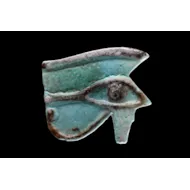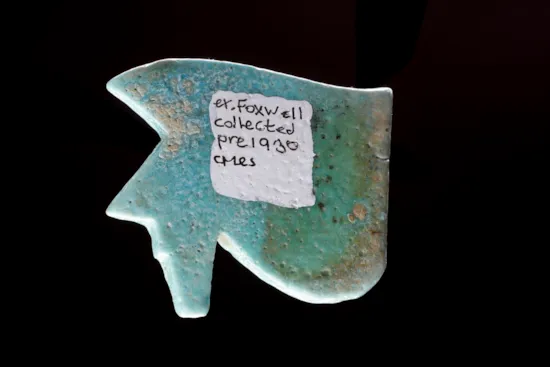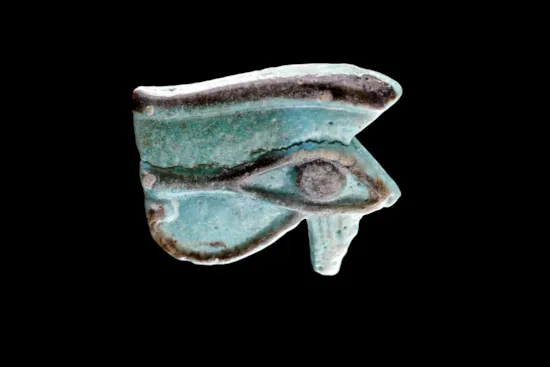Fine ‘Wedjat Eye’ Amulet
A Fine ‘Wedjat Eye’ Amulet
Faience, Glaze
Egypt
Late Period / 664 - 332 BC
SIZE: 3.5cm high, 4cm wide, 0.7cm deep - 1³⁄₈ ins high, 1½ ins wide, ²⁄₈ ins deep
Faience, Glaze
Egypt
Late Period / 664 - 332 BC
SIZE: 3.5cm high, 4cm wide, 0.7cm deep - 1³⁄₈ ins high, 1½ ins wide, ²⁄₈ ins deep
A Fine ‘Wedjat Eye’ Amulet
Faience, Glaze
Egypt
Late Period / 664 - 332 BC
SIZE: 3.5cm high, 4cm wide, 0.7cm deep - 1³⁄₈ ins high, 1½ ins wide, ²⁄₈ ins deep
Faience, Glaze
Egypt
Late Period / 664 - 332 BC
SIZE: 3.5cm high, 4cm wide, 0.7cm deep - 1³⁄₈ ins high, 1½ ins wide, ²⁄₈ ins deep
One of the most popular amulets in ancient Egypt, the ‘wedjat eye’ represents the healed eye of the god, Horus. Depicting a combination of a human and a falcon eye, as Horus was often associated with a falcon. The ancient Egyptian name, ‘wedjat’, means ‘the one that is sound’. In Egyptian mythology Horus’ eye was injured or stolen by the god Seth and then restored by Thoth. The ‘wedjat eye’ embodies healing powers and symbolises rebirth.
Amulets of this shape were thought to protect its wearer and to transfer the power of regeneration onto him or her. It was used by both the living as well as the dead.
Amulets of this shape were thought to protect its wearer and to transfer the power of regeneration onto him or her. It was used by both the living as well as the dead.
Ex Foxwell collection, collected pre-1930
Ex Tetragon, London
Ex Tetragon, London
Fine ‘Wedjat Eye’ Amulet

SOLD




YOU MAY ALSO LIKE

